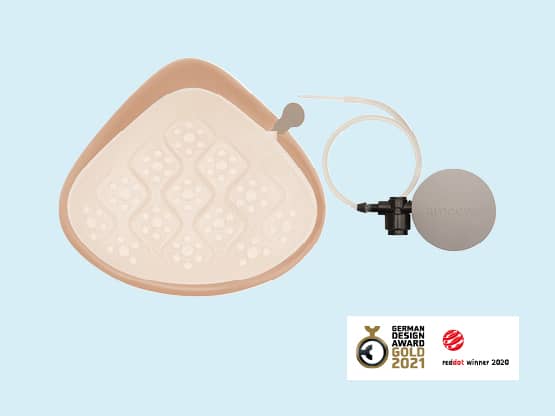“At Amoena, we manufacture our goods as sustainably as possible”
Amoena is committed to sustainability and ensures that working conditions abroad meet German standards.

Many companies have their goods manufactured abroad. Dirk Müller is responsible for the development and processing of textiles at Amoena. In this interview, he explains how Amoena ensures that the working conditions at foreign subsidiary companies meet the German quality standards and how the company is committed to sustainability.
Editor: Do you manufacture the lingerie and swimming costumes yourselves at Amoena?
Dirk Müller: We have longstanding partnerships with our suppliers, in both Central America and Asia.
Does Amoena purchase its materials from abroad because they are cheaper there?
That was the reason historically, at least. In order to save costs, almost all larger textile and clothing companies began manufacturing their goods abroad in the 1980s. As a consequence, the domestic spinning factories and sewing rooms formed other subsidiaries in Asia. Markets such as China have now gained a qualitative advantage over us in terms of textile manufacturing. Most of the suppliers of the raw materials and the fibres are now also in the Far East.
Employee’s rights are respected
How do you ensure that the foreign partner companies manufacture responsibly and that the employees are treated well?
All companies we work with, such as those in Asia, are certified by the Business Social Compliance Initiative (BSCI) and Worldwide Responsible Accredited Production (WRAP). BSCI and WRAP are something of a gold standard in the textile industry.
What does “gold standard” mean in this context?
The certification is a type of code of conduct that guarantees that the working conditions meet the European
What does “Standard 100 by Oeko-Tex” mean?

Dyeing with as little water as possible
How do you know that the companies you assign do not outsource the work to subcontractors?
We pay regular visits and constantly control the quality of every single production run. If the work were outsourced, we would notice. We also carry out regular unannounced inspections. However, what is particularly important at Amoena is that we do everything we can to manufacture our goods as sustainably as possible.
Do you have an example?
The materials we use come mostly from suppliers who have their own water treatment facilities. This means that much less water is used than usual in the industry for the manufacturing and








